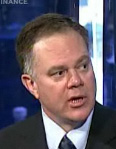
Energy and water are inextricably linked: It takes energy to supply water, and it takes water to supply energy. And those processes consume vast amounts of both. Yet we have only really begun to study the energy-water nexus and gather the data that policymakers will need to understand the risk that climate change poses to both power and water. As rainfall and temperatures continue to depart from historical norms, forcing conventional power plants to throttle back or shut down, we may need to invest more heavily in wind and solar PV just to keep the lights on. Even more radical solutions may become necessary, like switching to more dry-cooled power plants, and desalinating brackish groundwater. Ideally, we would treat the challenges of the energy-water nexus in an integrated way, deliberately reducing our energy and water demands simultaneously as part of our energy transition strategies, but our governments aren’t typically set up for that, and much more basic research and analytical work is needed.
Geek rating: 6
Guest: Jordan Macknick is an Energy and Environmental Analyst at the National Renewable Energy Laboratory (NREL). Jordan leads NREL analysis research on the interface of energy, water, and land issues in policy planning. In addition, his research addresses energy deployment in developing countries, technology characterizations, and global energy and carbon systems. Prior to joining NREL in 2009, he worked as a research associate at the International Institute of Applied Systems Analysis (IIASA) in Austria. He holds a BA in mathematics and environmental studies from Hamline University and a Master’s of Environmental Science from the Yale School of Forestry and Environmental Studies.
On the Web: NREL: The Energy-Water Nexus
Recording date: August 29, 2016
Air date: September 7, 2016
Links
Jordan Macknick speaking at Colorado Renewable Energy Society (CRES): The Energy Water Nexus (Mar 15, 2016)
Macknick, et al., “Water Constraints in an Electric Sector Capacity Expansion Model,” NREL/TP-6A20-64270 (Jul 2015)
Cohen and J. Macknick, et al., “Modeling Climate-Water Impacts on Electricity Sector Capacity Expansion,” NREL/CP-6A20-61435, (May 2014)
Macknick, et al., “Transitioning to zero freshwater withdrawal in the U.S. for thermoelectric generation,” Applied Energy, DOI: 10.1016/j.apenergy.2013.11.028 (Oct 2014)
Macknick, et al., “Operational water consumption and withdrawal factors for electricity generating technologies: a review of existing literature,” Environmental Research Letters, Volume 7, Number 4, (Dec 20, 2012)
Macknick, et al., “The water implications of generating electricity: water use across the United States based on different electricity pathways through 2050,” Environmental Research Letters, Volume 7, Number 4, (Dec 20, 2012)
All Things Considered, NPR, “Nuclear Plant May Be In Hot Water Over Its Cooling System” (Jul 23, 2014)
Chris Nelder, “The energy-water nexus, 2012 edition” (Aug 22, 2012)
Chris Nelder: “The Vulnerabilities of Complex Systems” (Nov 6, 2009)
Joon Hun Seong, PolicyMatters Journal, “New California Emissions Targets Spell Next Step in the State’s Fight against Climate Change” (Sep 1, 2016)
Brad Plumer, Vox, “California is about to find out what a truly radical climate policy looks like” (Aug 29, 2016)
Peter Maloney, Utility Dive, “After tariff changes, storage to play larger role in CAISO demand management” (Sep 6, 2016)
Julian Spector, Greentech Media, “How Much Energy Storage Would Be Needed for California to Reach 50 Percent Solar?” (Aug 24, 2016)
Paul Denholm and Robert Margolis, NREL, “Energy Storage Requirements for Achieving 50% Solar Photovoltaic Energy Penetration in California” (Aug 2016)
Aaron Bloom, et al., NREL, “Eastern Renewable Generation Integration Study” (Aug 2016)
Photo credit: By Lenilucho – Own work, CC BY 3.0, https://commons.wikimedia.org/w/index.php?curid=9566470






